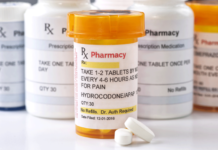effects, consequences, and the possible motivations behind self-medication.
As a child develops more social relationships, parents will want to talk to them about their friends’ opinions on substance abuse, and provide coaching in instances where their child may have gained misinformation from less reliable sources.
What Should I Say?
One of the most important elements of a dialogue about substance abuse children is making the motivations for catalyzing the conversation clear.
Parents should explain that they want to educate and protect their child from the hazards of substance abuse. Parents shouldn’t affect an authoritarian perspective, which will lead to alienation, but instead consider a perspective that emphasizes concern for a child’s well-being.
When imparting knowledge about substance abuse, parents want to alwaysbe sure that information is accurate. Providing unreliable information will only damage credibility, so parents want to be sure and conduct their own research before beginning the dialogue with their child.
At some point, a child will inevitably ask a question that parents won’t readily be able to answer. In instances like this, parents never want to guess or make something up, which can lead to a loss of their reliability and provide misinformation to their child. Instead, when confronted by a question that they cannot answer, parents should research the answer with their child.
When sharing information with a child, parents always want to check and make sure they understood the knowledge they have imparted. Ask a child for an example of what they just learned, and gently correct them as necessary.
When is the best time?
With a child’s busy schedule, it may be difficult to find the time to sit down with them and have a meaningful conversation.
Marianne Mullen, Program Coordinator for the National Council on Alcoholism and Drug Dependence in Orange County, says parents should “take advantage of times together such as driving in the car and from school and sports, during dinner and before bedtime.”
Another instance in which an opportunity for discourse can arise is during “teachable moments” provided by movies, TV shows, or music. Use mentions of substance abuse in a TV show, movie or song as a springboard to a conversation. Was the depiction of drug or alcohol use realistic? Was it glamorized? Did the narrative take time to recognize the consequences of substance abuse?
An Exchange of Information
Mullen emphasized the effect parental involvement can have. “Talking with your child about substance abuse can reduce your child’s chances of using alcohol, tobacco, or drugs by up to 50 percent,” she said. She also stressed the importance of the parental role, urging recollection that a parent is a parent rather than a friend, and that “your engagement and influence will put your child in that 50%.”
Nevertheless, one of the most important aspects of a dialogue concerning addiction is ensuring that parents take the time to listen to what their child has to say. Ask about their opinions on substance abuse, what experiences they might have had or heard from kids at school, and what they’ve learned about drugs and alcohol from teachers and television.
Knowledge is Power
One of the best defenses against addiction is information. By opening a dialogue about substance abuse with a child, parents will be in a position to provide them with the tools they need to make the right decisions when it comes to drugs and alcohol.

















